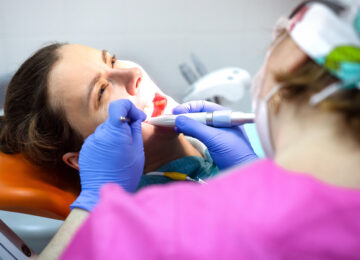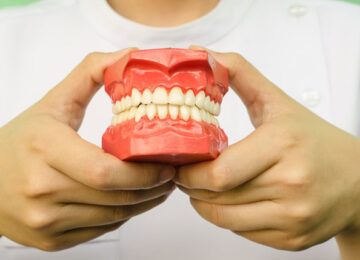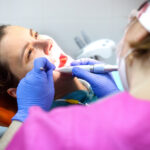Dental veneers are a common cosmetic dentistry treatment that improves smiles by filling teeth gaps, discoloration, and chipping. Although veneers are known to be durable, problems such as broken veneer may occur. We will explore the reasons for cracked veneers in dentistry, solutions to this issue, and safeguards to keep your smile bright and healthy in this blog post.
Causes of Broken Veneers
- Trauma and Accidents: Although dental veneers are durable, they may shatter if they are subjected to extreme pressure or damage, such as a fall or blow to the face.
- Grinding and Clenching: Over time, severe pressure from bruxism, tooth grinding, and clenching can cause cracks or fractures in dental veneers.
- Bad Oral Hygiene: Ignoring oral hygiene habits can exacerbate conditions such as gum disease, damage veneer support structures, and increase the possibility of fracture.
- Aging and Wear: Veneers may deteriorate naturally with time, leaving them more vulnerable to harm. Frequent examinations can assist in keeping an eye on veneer health and in addressing problems before they become more serious.
Addressing Broken Veneers
- Contact Your Dentist: If you suspect a broken veneer, the first step is to promptly contact the dentist. They will evaluate the extent of the damage and recommend the appropriate treatment.
- Temporary Solutions: In case of a minor chip or crack, the dentist may be able to provide a temporary solution, such as dental bonding or filing the affected area to smooth the edges.
- Veneer Replacement: For severe damage, a broken veneer may need to be replaced. Your dentist will make impressions to create a new veneer that matches the shape and color of the existing ones.
Preventive Measures:
- Wear a Mouthguard: If engage in activities that pose a risk of facial trauma, such as sports or teeth grinding, wearing a custom-fit mouthguard can provide essential protection for your veneers.
- Maintain Good Oral Hygiene: Regular brushing, flossing, and dental check-ups are crucial for preventing issues like gum disease that could compromise the stability of your veneers.
- Avoid Hard Foods: Be mindful of biting hard objects or foods, which can increase the risk of veneer breakage. Hard foods are cut into smaller, more manageable pieces.
- Address Bruxism: Speak with your dentist if you experience clenching or grinding of the teeth. They might suggest hiring a night watchman or taking other precautions to keep veneers safe.
Although cracked veneers can be an issue in dentistry, you can prolong the life of your dental improvement by taking proactive steps and acting quickly. For years, you can keep your smile looking great and feeling healthy by seeing your dentist regularly, practicing proper dental hygiene, and taking extra care in high-risk scenarios. Do not be afraid to ask your dentist for advice and help if you think there may be a problem with your veneers.











